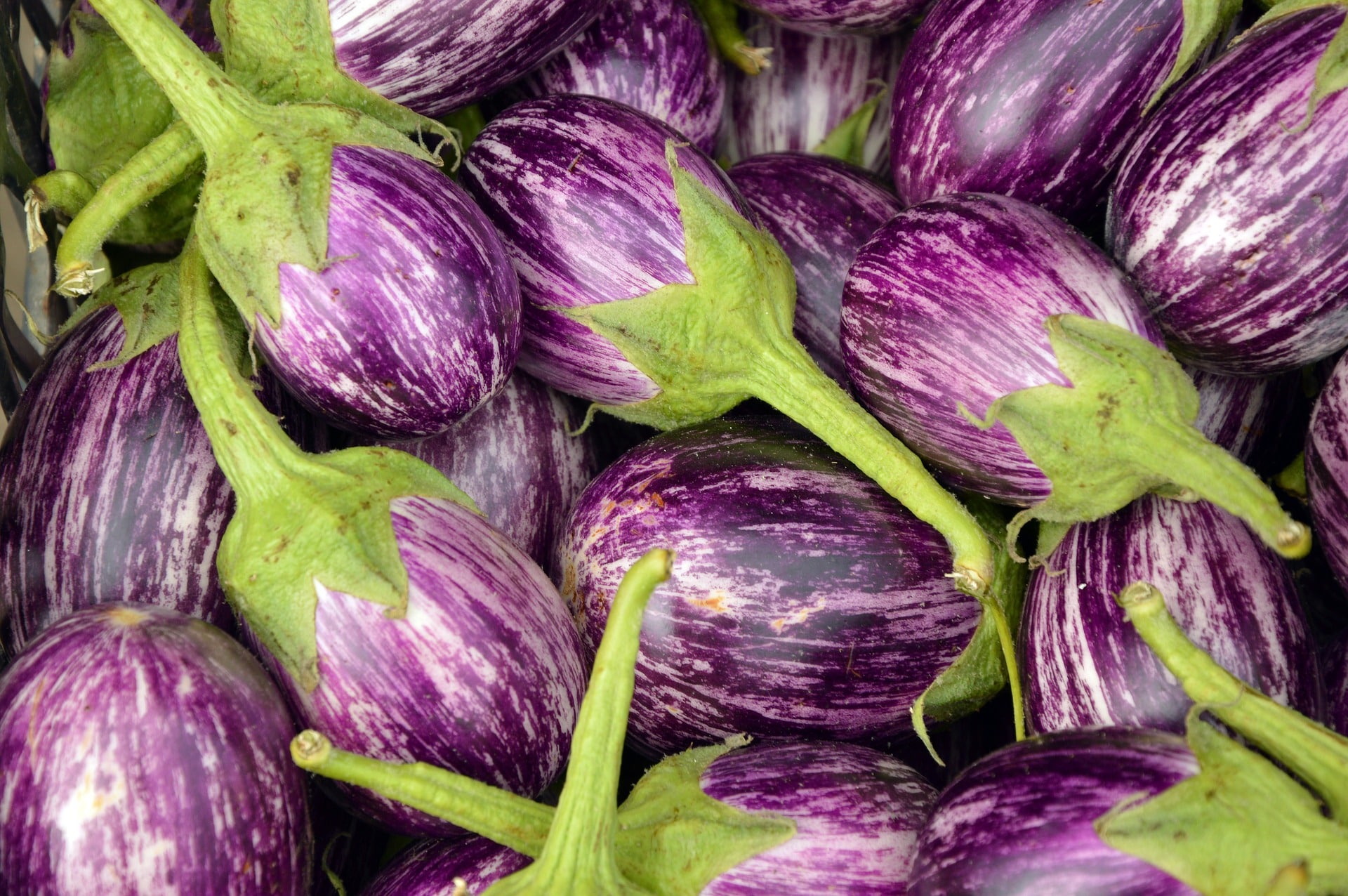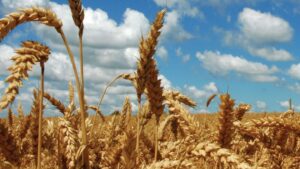Researchers with the New Hampshire Agricultural Experiment Station at the University of New Hampshire have found that eggplant varieties developed specifically for growing in greenhouses and high tunnels produced a prolific amount of fruit, offering Granite State growers another option for summer vegetable production.
“A survey of high tunnel producers in 2016 indicated that a surprisingly high number of producers were growing eggplant in tunnels,” says Becky Sideman, extension professor of sustainable horticulture production. “This number increased in a 2019 survey. While some cultivars are marketed as being suitable for high tunnel production, there have been no comprehensive studies available to guide selection of eggplant cultivars.”
According to the USDA’s Census of Agriculture, 92 Granite State farms were growing eggplant to sell fresh to consumers in 2017, an increase from 55 farms in 2012.
Sideman and Leah Ford, undergraduate research assistant, evaluated elongated types of eggplant, including several varieties that set fruit without pollination, recently developed specifically for greenhouse and tunnel production. The goal of the study is to compare yields of eggplant varieties in high tunnel production conditions. In addition, they are investigating whether pruning would affect yields compared to no pruning and to compare quality in post-harvest storage.
In the first year, researchers evaluated seven varieties of eggplants and found only slight differences in total marketable yield between varieties, but varieties differed in percentage of marketable fruit. The researchers also found aphids and spider mites presented challenges to growing eggplants in high tunnels and that pruning plants to two to four leaders increased yields. Finally, some varieties were more susceptible to chilling injury, showing considerable browning under refrigerator conditions.
“Our results clearly illustrate the problems caused by storing eggplant at temperatures that are too cold or too warm,” says Sideman. “At temperatures that were much warmer than ideal, such as in the packhouse, eggplant fruit lost much more weight and softened much more than if stored at cooler temperatures. At cold refrigerator temperatures, eggplant lost the least weight and remained very firm, but they suffered chilling injury, showing surface pitting and browning.”
Now in its second year, the experiment has expanded to include eight varieties, and portions of the experiment are being repeated by collaborators Olivia Saunders and Heather Bryant, both with UNH Cooperative Extension in Carroll and Grafton counties, respectively.
According to Sideman, vegetable and berry growers in New Hampshire face several unique challenges, including a humid climate that favors disease and insect pressures, a short growing season and variable weather patterns, high land values and labor costs. Despite these challenges, the opportunities for local vegetable and berry production are vast. The strong relationship between producer and consumer encourages growers to market innovative crops and products that are unique to their farm or to the region, thereby differentiating themselves from other farms and from supermarkets.
“Crop varieties developed in other climates may or may not be adapted to the short growing season, cold winter temperatures, specific soil types, or prevalent pests of New Hampshire. As a result, varieties must be carefully evaluated for performance in this region. Use of the most effective growing practices for our region, including new varieties, new crops, and season extension strategies, can increase farm profitability through diversification and improved yields and crop quality. For this reason, we focus our integrated research and extension effort on high-value specialty crop production systems and methods of extending the growing season in New Hampshire,” she says.
This material is based upon work supported by the NH Agricultural Experiment Station, through joint funding of the National Institute of Food and Agriculture, U.S. Department of Agriculture, under award numbers 1006928 and 1017760, and the state of New Hampshire. This work also was supported by the NH Vegetable & Berry Growers’ Association and UNH Cooperative Extension.
Founded in 1887, the NH Agricultural Experiment Station at the UNH College of Life Sciences and Agriculture is UNH’s original research center and an elemental component of New Hampshire’s land-grant university heritage and mission.
The University of New Hampshire inspires innovation and transforms lives in our state, nation and world. More than 16,000 students from all 50 states and 71 countries engage with an award-winning faculty in top-ranked programs in business, engineering, law, health and human services, liberal arts and the sciences across more than 200 programs of study. As one of the nation’s highest-performing research universities, UNH partners with NASA, NOAA, NSF and NIH, and receives more than $110 million in competitive external funding every year to further explore and define the frontiers of land, sea and space.
Source: University of New Hampshire












